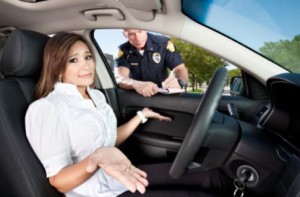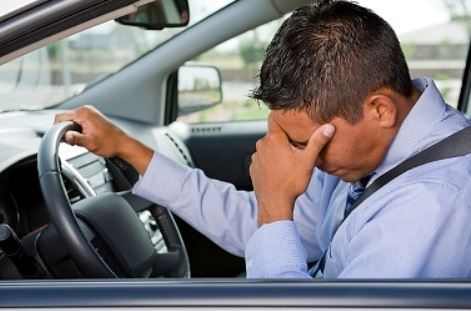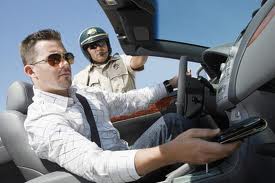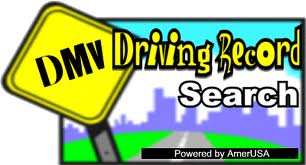What Drivers Need to Know About Speeding in Virginia

Understanding Reckless Driving in Virginia:
Speeding in Virginia can result in a charge of reckless driving, which is considered a misdemeanor offense. Reckless driving is not to be taken lightly, as it carries similar penalties to driving under the influence (DUI). It is essential to note that exceeding 80 mph or driving 20 mph over the speed limit can lead to a reckless driving charge. Moreover, simply running off the road can also result in a reckless driving ticket for “failure to maintain control” of your vehicle.
Tips for Protecting Yourself:
To ensure you stay out of trouble while driving in Virginia, here are some helpful tips:
- Observe Speed Limits: Keep your speed below 80 mph and avoid exceeding the speed limit by more than 19 mph. Even if the speed limit is 65 mph, you must not go over 80 mph to avoid a reckless driving charge.
- Exercise Caution During Holiday Weekends: Holiday weekends are known for increased enforcement of traffic laws in Virginia. Therefore, it’s crucial to be extra vigilant with your driving and strictly adhere to speed limits during these periods.
How to Respond to a Speeding Ticket:
If you find yourself facing a speeding ticket in Virginia, it’s important to handle it appropriately. Here’s what you should do:
- Read and Understand the Ticket: Carefully read the ticket and look up the specific “Law Section” you are charged with. Different charges require different responses.
- Seek Legal Advice: For reckless driving charges, it’s highly recommended to consult with a local traffic lawyer who is familiar with cases like yours. They can provide valuable insights into potential punishments and help you make informed decisions.
Why Virginia is Strict on Speeding:
Several factors contribute to Virginia’s strict approach to speeding violations:
- Safety Concerns: Legislators aim to prioritize road safety and create the perception of effective traffic laws by enforcing stringent regulations.
- Financial Reasons: Reckless driving fines can be substantial, with the potential to reach $2,500. These fines, along with higher court costs, generate significant revenue for the state.
How to Contest an Unfair Traffic Ticket in Virginia
A Comprehensive Guide to Traffic Tickets in Virginia: Costs, Consequences and Tips for Avoidance
Tips for Avoiding a Speeding Ticket in Virginia
Conclusion:What Drivers Need to Know About Speeding in Virginia
Being knowledgeable about speeding laws and the potential consequences in Virginia is essential for all drivers. By adhering to speed limits, remaining cautious during holiday weekends, and seeking legal advice when needed, you can protect yourself from the serious implications of reckless driving charges. Stay informed, stay safe, and enjoy your travels in the Commonwealth of Virginia.
Frequently Asked Questions
What are the specific speeding laws and regulations in Virginia?
Virginia has strict speeding laws that include reckless driving charges for driving over 80 mph or exceeding the speed limit by 20 mph or more. Reckless driving is considered a misdemeanor offense with severe penalties.
How does Virginia classify reckless driving and what are the associated penalties?
Reckless driving in Virginia is classified as a misdemeanor offense. The penalties can include fines, license suspension, and even jail time. The severity of the punishment depends on factors such as the speed over the limit and the judge’s discretion.
What are some common misconceptions about speeding in Virginia?
A common misconception is that speeding violations are minor infractions. In Virginia, however, exceeding certain limits can result in a reckless driving charge, which carries significant penalties and potential long-term consequences.
What steps can drivers take to ensure they stay within the legal speed limits in Virginia?
Drivers should carefully observe and adhere to posted speed limits. It’s important to pay attention to road signs, maintain a safe driving speed, and adjust accordingly to avoid exceeding the speed limits.
Are there any exceptions or special circumstances where exceeding the speed limit is allowed in Virginia?
Generally, there are no exceptions or special circumstances where exceeding the speed limit is allowed in Virginia. It is essential to abide by the posted speed limits at all times, regardless of the situation.
How can drivers educate themselves about the speed limits in different areas of Virginia?
Drivers can educate themselves about speed limits by being aware of and adhering to the posted signs along the roadways. It’s advisable to stay updated on the speed limits in different areas and be mindful of any changes or variations.
Are there any alternative options to paying fines for speeding tickets in Virginia?
While fines are typically the standard penalty for speeding tickets in Virginia, drivers may explore the possibility of contesting the ticket or seeking legal advice to explore alternative options. However, specific circumstances and legal guidance should be considered in such cases.
What are the potential long-term consequences of a reckless driving conviction in Virginia?
A reckless driving conviction in Virginia can have lasting consequences, including a criminal record, increased insurance premiums, driver’s license points, and potential employment or professional implications. It’s important to understand the seriousness and long-term impact of such convictions.
How can drivers effectively challenge or dispute a speeding ticket in Virginia?
To effectively challenge a speeding ticket in Virginia, drivers should gather evidence, such as witness statements or proof of compliance with speed limits. Seeking legal advice from a traffic lawyer who specializes in Virginia law can provide guidance on the best course of action.
Are there any ongoing discussions or proposals to modify the reckless driving laws in Virginia?
While specific discussions and proposals may vary over time, it’s important to stay updated on any potential changes to Virginia’s reckless driving laws. Monitoring legislative developments and consulting with legal professionals can provide the latest information on any proposed modifications.
Resource : https://www.dmv.virginia.gov




